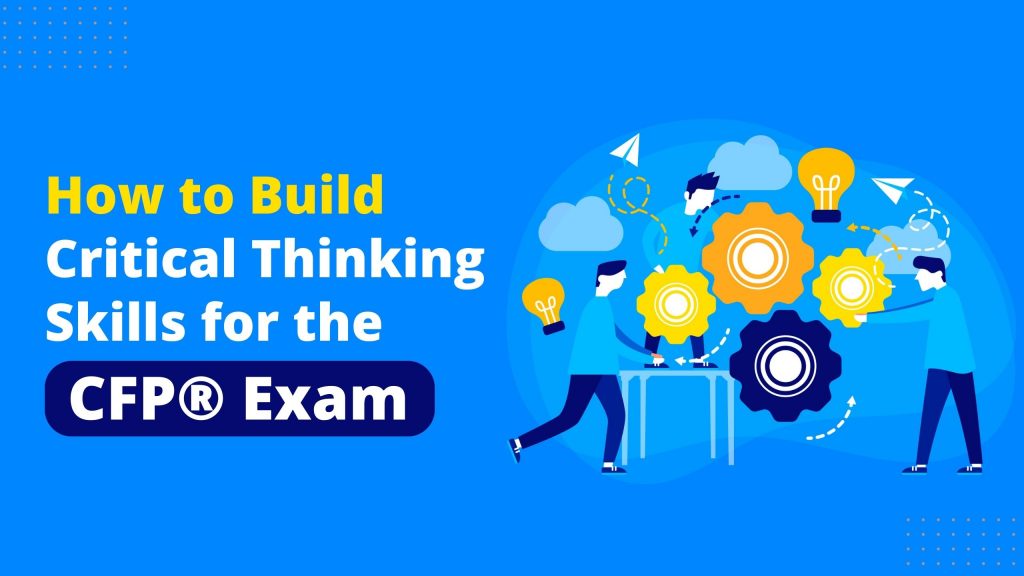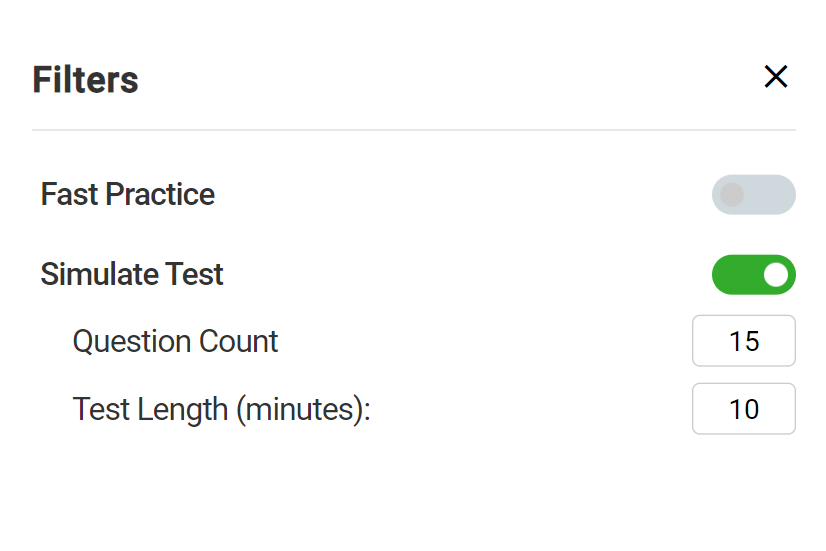How to Build Critical Thinking Skills for the CFP® Exam

In the world of financial planning, achieving a milestone by passing the CFP® exam is a coveted achievement.
As Warren Buffett wisely puts it, ‘The most important investment you can make is in yourself.’
Beyond comprehensive financial knowledge, the key to unlocking this success lies in honing critical thinking skills.”
Candidates are adept at navigating complexities, analyzing intricate scenarios, and making informed decisions and excel on their journey toward the esteemed CERTIFIED FINANCIAL PLANNER™ designation.
Cognitive analysis empowers the aspirants to conduct a thorough market analysis, assess business feasibility and identify risks. In this article, we have penned down some practical strategies to build and sharpen your critical thinking skills to excel in the CFP® exam and beyond.
1. Read more to diversify your knowledge
Expand your knowledge base by reading a variety of financial publications, books, and case studies. Diverse sources expose you to different perspectives, financial scenarios, and problem-solving approaches. Regular reading will enhance your ability to analyze complex financial situations and think critically about potential solutions.
2. Ask thought-provoking questions
Asking insightful questions is a hallmark of analytical thinking. During your CFP® exam preparation, challenge yourself to pose thought-provoking questions about financial concepts and scenarios. This practice encourages you to delve deeper into the subject matter and helps in strengthening your rational thinking skills.
3. Think step by step
Break down complex monetary problems into manageable steps. Approach each challenge methodically, analyze the information available, and evaluate the implications of various decisions. Thinking step by step enhances risk identification and structured solutions, empowering success in the CFP® exam and your role as a certified financial planner.
Regularly contemplate your progress and areas for improvement. Self-evaluation is a critical aspect of developing your critical thinking skills. Identify your strengths and weaknesses and focus on enhancing the latter. Practicing self-awareness allows you to fine-tune your approach to problem-solving and continuously evolve as a problem-solver.

5. Analyzing contrasting viewpoints
By immersing yourself in a range of viewpoints, you expose yourself to varying insights and approaches within the financial landscape. As you delve into the analyses and comparisons of these contrasting perspectives, you are encouraged to think critically about the strengths and weaknesses of each argument. This practice broadens your knowledge and nurtures a well-rounded understanding of financial concepts, empowering you to confidently navigate complex scenarios during the CFP® exam and throughout your career.
6. Simulate exam conditions
Practice solving maximum CFP® exam mock tests especially under timed conditions to simulate the actual test environment. You can do this effortlessly by setting the time limit and number of questions on the ‘simulate test’ feature on CFP® Exam Prep by Achieve. Doing this frequently enhances your ability to think logically under pressure, prioritize information, and manage time effectively during the exam.

7. Utilize analogies
In the context of the CFP® exam, utilizing analogies can be an effective study technique to simplify complex financial concepts. Relate new monetary concepts to familiar analogies or real-life examples to simplify complicated ideas. Metaphors aid in understanding and allow you to approach problems from different angles, improving your logical reasoning capacity.
———————————————-
Building critical thinking skills is undoubtedly a gradual process that demands unwavering dedication and continuous practice. Initially, grasping tricky situations and making sound judgments may seem challenging, leading to occasional doubt about decisions. However, by following the insightful tips provided in this blog, you can embark on a transformative journey of growth.
Additionally, this will hone your analytical thinking abilities. With persistent practice, your reflective thinking will sharpen, empowering you to confidently tackle intricate financial scenarios during the CFP® exam and in your professional voyage.